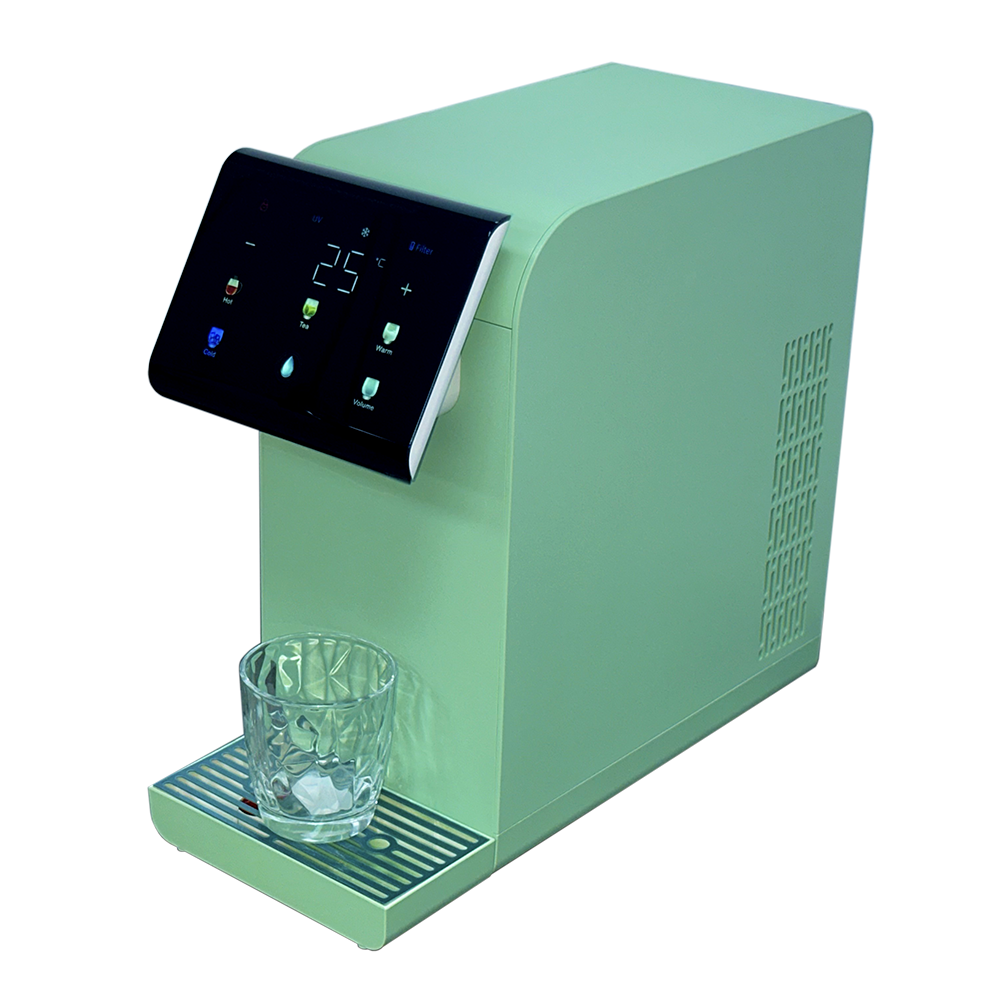 Tired of slow-dripping pitchers and complicated installations? Countertop water filters deliver serious filtration power with true plug-and-play simplicity. This practical guide cuts through the hype to show how these space-efficient systems work, who they’re best for, and how to choose the right model for your home.
Tired of slow-dripping pitchers and complicated installations? Countertop water filters deliver serious filtration power with true plug-and-play simplicity. This practical guide cuts through the hype to show how these space-efficient systems work, who they’re best for, and how to choose the right model for your home.
Why Go Countertop? The Perfect Balance of Power and Simplicity
[Search Intent: Problem & Solution Awareness]
Countertop filters hit the sweet spot between pitcher convenience and under-sink performance. They’re ideal if you:
Rent your home and cannot modify plumbing
Want better filtration than pitchers provide
Need immediate access to filtered water without installation delays
Have limited under-sink space but adequate counter space
These systems sit conveniently on your countertop, either connecting directly to your faucet or operating as standalone dispensers.
How Countertop Water Filters Work: Two Main Styles
[Search Intent: Informational / How It Works]
1. Faucet-Connected Systems:
Screw onto your existing faucet via diverter valve
Provide instant on-demand filtered water
Typically offer 2-3 stage filtration (sediment + carbon block)
Examples: Waterdrop N1, Culligan FM-15A
2. Gravity-Fed Dispensers:
Fill manually at the top, gravity pulls water through filters
No plumbing connection required
Often feature larger capacity (1-2 gallons)
Examples: Berkey, AquaCera
What Countertop Filters Remove: Realistic Expectations
[Search Intent: "What do countertop water filters remove"]
| ✅ Effectively Reduces | ❌ Generally Does NOT Remove |
| :— | : — |
| Chlorine (Taste & Odor) | Fluoride (unless specified) |
| Lead, Mercury, Copper | Nitrates/Nitrites |
| Sediment, Rust | Bacteria/Viruses (unless UV) |
| VOCs, Pesticides | Total Dissolved Solids |
| Pharmaceuticals (some models) | Water Hardness Minerals |
Key Insight: Most quality countertop filters match under-sink systems for common municipal water concerns. Always check NSF certifications for verified performance claims.
Top 3 Countertop Water Filters of 2024
Based on performance testing, user reviews, and value analysis.
Model Type Key Features Best For Price
AquaTru Classic Countertop RO 4-stage RO filtration, no plumbing Serious contamination concerns $$$
Berkey Black Berkey Gravity System Powerful gravity filtration, large capacity Preppers, large families $$$
Waterdrop N1 Faucet-Connected 3-stage filtration, high flow rate Small spaces, renters $$
Countertop vs. Other Systems: Where They Shine
[Search Intent: Comparison]
Feature Countertop Under-Sink Pitcher
Installation None/Simple Complex None
Filtration Power High High Medium
Capacity Large Unlimited Small
Space Usage Counter Space Cabinet Space Fridge Space
Cost $$ $$ $
5-Step Selection Guide
[Search Intent: Commercial - Buying Guide]
Test Your Water First: Know what contaminants you need to remove
Measure Your Space: Ensure adequate counter space near faucet
Check Faucet Compatibility: Verify thread type and clearance
Calculate True Cost: Factor in system price + annual filter replacements
Verify Certifications: Look for NSF/ANSI standards (42, 53, 58, 401)
Installation: Easier Than You Think
[Search Intent: "How to install countertop water filter"]
Faucet-Connected Systems (5 Minutes):
Remove existing aerator from faucet
Screw on provided adapter
Attach filter unit to adapter
Flush system according to instructions
Gravity Systems (Instant):
Assemble stand and chambers
Install filters according to instructions
Fill upper chamber with water
Wait for filtration to complete
Cost Analysis: Better Value Than You’d Think
[Search Intent: Justification/Value]
System Cost: $100-$400 upfront
Annual Filter Cost: $60-$150
Vs. Bottled Water: Saves $800+/year for average family
Vs. Pitchers: Better filtration, larger capacity, similar long-term cost
FAQ: Answering Real User Concerns
[Search Intent: "People Also Ask"]
Q: Will it slow down my water pressure?
A: Faucet-connected models have reduced flow rate when filtering. Gravity systems depend entirely on gravity speed.
Q: Can I use hot water with it?
A: Never! Most systems are designed for cold water only unless otherwise specified.
Q: How often do filters need replacement?
A: Typically 6-12 months, depending on usage and water quality.
Q: Do they require electricity?
A: Most don’t. Some advanced models with UV lights or smart indicators may need power.
The Verdict: Who Should Buy One
✅ Ideal For:
Renters and apartment dwellers
Those wanting better filtration than pitchers
People avoiding complex installations
Homes with limited under-sink space
❌ Not Ideal For:
Those with minimal counter space
People wanting hidden filtration
Homes needing whole-house filtration
Maintenance Made Simple
Regular Cleaning: Wipe exterior weekly
Filter Changes: Mark calendar for replacements
Sanitizing: Deep clean every 6 months
Storage: Keep away from heat sources
Next Steps
Test Your Water: Use simple test strips or lab test
Measure Your Space: Ensure adequate counter area
Check Compatibility: Verify faucet type and threads
Compare Models: Read recent user reviews
Ready for hassle-free filtered water?
➔ See Current Prices and Deals
Post time: Sep-26-2025

